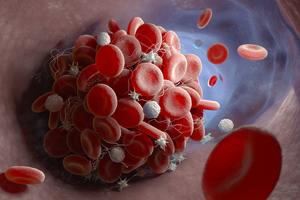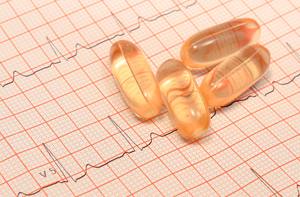Recent rises of heart failure in young adults have doctors concerned. Heart failure refers to the heart not pumping enough blood for the body’s needs. (Contrary to what people often think, it does not mean your heart has stopped beating.) It is the leading cause of hospitalization for people over 65, but now hospitals are seeing younger patients. 1 in 5 young heart attack patients (50 or younger) is under the age of 40. Those that are hospitalized in their 20s and 30s have the same risk of heart attack and other cardiovascular problems as those who are much older. [1] [2] [3]
But why is all of this happening? Cases are mainly due to heart abnormalities. These can be congenital disabilities or can develop throughout life due to infections, conditions, or lifestyle behaviors.
What is causing Heart Failure in young adults?
Many different factors are causing these cases. Some are factors and behaviors that put young adults at higher risk of heart failure. These often lead to heart diseases and health conditions that also increase that risk. However, some conditions are inherited or that patients are simply born with. Let us explore these factors and health conditions that are causing Heart Failure in young adults.
Factors and Behaviors
Most of the factors that cause heart failure in young adults are similar to the ones that cause heart failure in mature adults. These risk factors and behaviors can lead to cardiovascular problems and increase a person’s risk of heart failure. Thankfully, the opposite is also true. By addressing these factors, you can reduce your risk of heart failure.

High Blood Pressure
High Blood Pressure (or hypertension) is a significant factor that leads to heart disease and heart failure. This is because higher pressure against artery walls over a long time will start to damage them. Hypertension is anything that is 140/90 or higher.
High Cholesterol
High cholesterol levels that build up in the arteries can also lead to heart failure. This is when there are high levels of LDL (“bad”) cholesterol and not enough HDL (“good”) cholesterol. Make sure to include foods with HDL cholesterol such as whole grains, nuts, seed, and olive oil. Stay away from foods with the LDL cholesterol—these are foods that contain trans fat, shortening, preservatives, or are deep fried.
Obesity
Obesity puts extra stress on your heart and makes it pump more frequently. It also indicates other risk factors such as high cholesterol levels.
Diabetes
Diabetes increases the risk of heart disease and Heart Failure because high blood glucose can damage the arteries over time. [4]
Family History
Having a family history of heart failure will increase your risk of heart failure. Get to know your family history and be aware of potential health risks.
Smoking
Smoking will increase your risk of heart disease and heart failure. It raises your blood pressure and causes plaque to build up in your arteries. It also lowers the good HDL cholesterol levels in your body. [5]
Substance Abuse
Substance abuse is a common risky behavior among young adults that suffer from heart failure. The American College of Cardiology reports that the youngest patients were more likely to report substance abuse, including marijuana and cocaine. [6]
Heart Diseases and Health Conditions
The above factors will likely lead to various cardiovascular diseases. Others are birth defects or inherited conditions that people cannot control. But all of the following have played a role in heart failure in young adults. Being aware of the risks factors will help you take steps with yo ur doctor toward a healthier you.
ur doctor toward a healthier you.
Coronary artery disease
Coronary artery disease (CAD) occurs when cholesterol deposits or plaque builds up in the arteries, creating blockages that cause heart attacks and Heart Failure. [2]
Heart muscle disease
Also called cardiomyopathy, it is a type of progressive heart disease where the heart is abnormally enlarged, thickened, and/or stiffened. Because of that, the heart has a hard time pumping blood. Symptoms include shortness of breath, heart palpitations, swelling of the legs, fatigue, dizziness, blood clots, and chest pain. [3] [7]
Hypertrophic cardiomyopathy
One major type of heart muscle disease is hypertrophic cardiomyopathy. It is a thickened heart muscle, which also thickens the walls of the heart and causes abnormal valve function. It also disrupts the heart’s electrical system. People with a thickened heart muscle often experience chest pain, shortness of breath, fatigue, fainting, and heart palpitations. [2] [8]
Atrial fibrillation
This is a quivering or irregular heartbeat in the upper chambers of the heart. People often feel a fluttering in the chest. Some have accompanying nausea. Others do not experience many symptoms, so it is important to have regular checkups with your doctor.
Coronary artery abnormalities
This is a condition people are born with that occurs when the coronary arteries are not connected properly. Coronary artery abnormalities allow the arteries to become compressed during physical activity and limits proper blood flow to the heart. [3]
Long QT syndrome
 Long QT syndrome is an inherited disorder that causes fast, chaotic heartbeats. It can lead to fainting and seizures and increases the risk of sudden death in young adults. Thankfully, this condition can be diagnosed and treated. If you are experiencing rapid or irregular heartbeats, seek medical help. [2]
Long QT syndrome is an inherited disorder that causes fast, chaotic heartbeats. It can lead to fainting and seizures and increases the risk of sudden death in young adults. Thankfully, this condition can be diagnosed and treated. If you are experiencing rapid or irregular heartbeats, seek medical help. [2]
Other
Other common factors can include the inflammation of the heart muscle and abnormalities of heart’s electrical system (known as Brugada syndrome). Many are injury related, especially in athletes. For example, taking a blunt blow to the chest at the wrong time can disrupt the heart’s electrical cycle. This is what is known as commotion cordis, and can cause sudden cardiac death. These occurrences are rare, but young athletes that are at risk of heart failure should use caution, such as eliminating high impact or contact sports. [2]
What can be done to prevent Heart Failure?
As mentioned above, not every factor can be prevented. However, some heart failure can be prevented. Whether preventable or not, there are simple things every young adult can do to be aware of their risk for heart failure and to take actions to lower that risk. Consider the following recommendations:
- Because family history of heart failure will increase your risk of heart failure, it is important to get to know your family history. Work with your doctor to see what you can do if you are at greater risk of heart failure.
- Have regular checkups with your doctor. Sometimes symptoms do not reflect the seriousness of the condition, so it is essential to get a regular screening of your heart health.
- Watch for common symptoms. Symptoms of heart diseases often include chest pain, heart palpitations (irregular heartbeats), swelling of the legs and ankles, fatigue, dizziness or feeling lightheaded and fainting. If you are experiencing any of these symptoms, seek medical help.
- Maintain a healthy weight, cholesterol levels, and blood pressure. By eating a healthy diet rich in fruits, vegetables, and whole grains you can reduce your risk of heart failure at any age. Take care to eat foods that are low in LDL cholesterol and high in HDL cholesterol.
- Eliminate risky behaviors such as smoking or drug abuse.
- For those who are at risk of heart failure, be careful about what physical activity you choose to do. If you are at risk of heart failure, you might want to avoid high-impact sports and contact sports.
The Bottom Line
Heart failure is increasing in young adults. This is often due to factors such as high blood pressure, diabetes, obesity, smoking, and substance abuse. These cases can also be attributed to family history and other heart diseases. It is important to be aware of family history, factors, and symptoms in order to reduce your risk of heart failure. Many of these cases in young adults are preventable through healthy living or by seeking medical help. Talk with your doctor if you are concerned about heart disease, no matter your age.
Resources:
- https://www.acc.org/about-acc/press-releases/2019/03/07/08/45/heart-attacks-increasingly-common-in-young-adults
- https://www.mayoclinic.org/diseases-conditions/sudden-cardiac-arrest/in-depth/sudden-death/art-20047571
- https://health.clevelandclinic.org/heart-failure-before-age-65-how-does-it-happen/
- https://www.niddk.nih.gov/health-information/diabetes/overview/preventing-problems/heart-disease-stroke
- https://www.fda.gov/tobacco-products/health-information/how-smoking-affects-heart-health
- https://www.acc.org/about-acc/press-releases/2019/03/07/08/45/heart-attacks-increasingly-common-in-young-adults
- https://www.webmd.com/heart-disease/guide/muscle-cardiomyopathy
- https://www.webmd.com/heart-disease/guide/hypertrophic-cardiomyopathy#1

